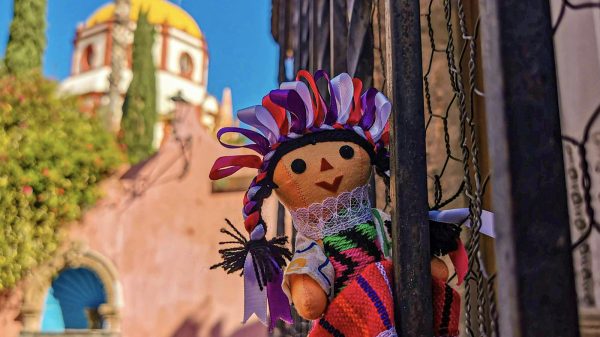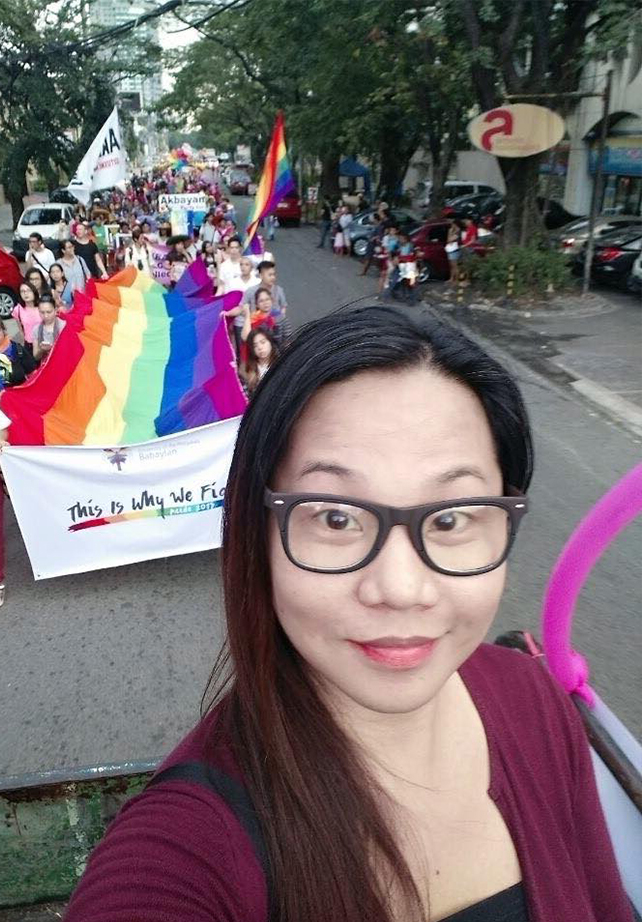Sometime in 2013, Krizia Zeggers became a member of the Association of Transgender People in the Philippines (ATP) where she said she met other women of transgender experience. At that time, “I realized that working on a specific cause is a lot more fulfilling than just sitting in a meeting and listening to stories of other transwomen, so I engaged myself with the causes that our organization supports like HIV and AIDS, trans visibility, organizing local trans groups, et cetera,” Krizia said.
That, in a way, started Krizia’s path to becoming a trans advocate.
“What triggered me to become an LGBT advocate are our collective experiences as members of the LGBT community. When you are discriminated and belittled because of your gender identity and sexual orientation, you have this innate feeling to get even or retaliate. If you are bullied because of who you are as a person, it diminishes your self-confidence and eats you up until you become helpless. You cannot just fight alone, raw and inexperienced; you need to have a platform that you can use in dealing with all these and that is through advocacy – this triggered me to become an LGBT advocate.”
Krizia is, by the way, a member of the indigenous Bago tribe from Northern Luzon (who are “hilltribe dwellers in the border regions between Ilocos and Cordillera mountains who are the offspring of intermarriages as well as product of trade between mountain tribes of the Cordillera and the Iloko of the lowlands,” according to Vic Buaquen in The Bago). There, Krizia said, “we’re tolerated.” That is, while some would treat them as women, just as they identify, “there are those who would still treat us according to our assigned sex at birth.”
While Krizia was verbally abused (i.e. being taunted as “bakla”) when she was young, she knows of others whose experiences were worse. And so “I think kelangan lang i-educate sila regarding SOGIE and trans101. I am sure naman mas lalawak pa ang pang-unawa ng mga tao sa mga gaya namin pag nangyari yun (I think they just need to be educated about SOGIE and trans 101. I am sure they will better understand us if this happens),” Krizia said.
For Krizia, the key issues that the LGBT community in the Philippines should focus on include: HIV, “which is timely because of the increasing numbers of people living with HIV”; strengthening of the LGBT movement because of the need to “work hand-in-hand as one community in influencing government officials to create gender-fair ordinances in their respective cities and municipalities”; issues on intersectionality within the LGBT community; and the continuing violence, discrimination and bullying experienced by members of the LGBT community.
Krizia recognizes that the community has a challenging road ahead.
It disappoints her, for instance, that “there are members of the LGBT community who have influence and voice in the mainstream society but remain mum with regards to the issues that we are facing. I am also disappointed to a few self-centered, money-oriented LGBT leaders. It is also disappointing that we don’t have the full support of one another – you can see in the social media how members of the LGBT community attack/bash each other. It is disappointing that this is happening instead of us being united in attaining our goals as one community,” Krizia said.
But Krizia remains hopeful.
“Like any other community/group, ours is diverse and that makes it beautiful and interesting; and anything beautiful and interesting is an inspiration to me. We just have to be careful because this beauty may also lead us to trouble if it is not handled the right way. We should use it to our advantage,” she said.
Now a board member of ATP, Krizia aims to “continue supporting/working on the causes of our organization.” She believes that “once an advocate, you’re always an advocate. You can’t retire from it because advocacy is in the heart and that is the beauty of it.”
And to help out other trans people from indigenous communities, Krizia said that “it’s good to always reach out to them.” In fact, she already helped organize a trans group in the Bag-o tribe, “and I have plans to have the members undergo trans and SOGIE 101 para sila na rin bahala mag-spread ng information sa mga members ng community (so they themselves can spread information to the community),” Krizia said. All “small steps to attain equality for all.”
































































